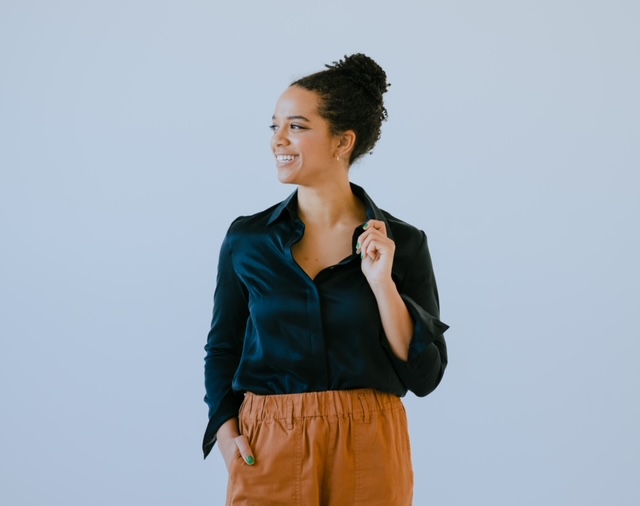Junior Audrey Vint transferred to the University of Northern Iowa this academic year after attending community college back home – close to two hours away from campus. Under pre-Covid circumstances, she would have had to connect to new mental health services. However, with telehealth now an option with her provider back home, she can receive mental health care at school. Likewise, Tanya Sorin, a freshman at Cabrillo Community College in Aptos, California, started using her school’s online services in August 2021. Sorin has never used in-person therapy, and finds online counseling to be much less hectic and easier to work into her schedule.
Universities have continued offering virtual counseling options – sometimes without the choice for an in-person visit – despite the shift back to in-person instruction. Though virtual counseling maximizes flexibility for students and providers, it also brings new challenges with ensuring confidentiality and providing a comfortable environment where students can utilize telehealth services in private. However, for some students, virtual counseling brings the opportunity to connect from afar – sometimes motivating a student to seek help when they may have otherwise not accessed services.
Studies have demonstrated that teletherapy can be just as effective as in-person therapy for treating common disorders like depression, anxiety, and post-traumatic stress disorder (PTSD). In September 2021, Inside Higher Ed reported on the expansion of digital and telehealth options for campus mental health services. The ability to access services from anywhere has allowed students living off-campus, or even attending classes remotely from different towns or states, to access campus services. It also offers increased convenience for students living on huge campuses or schools in cold climates, where a 25-minute trudge through snow may be the final deterrent in seeking therapy in the winter. Furthermore, it can make therapy feel less “scary,” as you don’t have to meet face-to-face or physically walk into the health center anymore. For students who don’t speak out on mental health issues due to cultural, familial, religious, or other personal reasons, or for those still internalizing stigma surrounding mental illness, the ability to take counseling sessions from a private, virtual space can be transformative for their mental health journey.
At Minerva University, a global institution with seven different campuses worldwide, each location has their own on-site resources, but virtual counseling has allowed students to receive ongoing care from clinicians they may have used at one site before moving to another. “Here’s what some students told me when I was at Brown [University] and I’ve taken this to heart. More options is almost always better for mental health,” said Dr. Will Meek, the Global Director of Mental Health & Wellness at Minerva University. Meek first started working as a counseling director in 2008, and since then has been frequently asked about the possibility of offering virtual services to students. Before Covid, there was always an excuse Meek used to shut down the possibility of remote care – the institution didn’t have the technology, policies, or expertise to conduct counseling online. Covid was a major shift in that it forced schools to expand their services into the digital space.
For students like Sorin and Vint, the preference for “more options” resonates – and the idea of returning solely to in-person counseling is less than favorable. “I don’t think I would want to have an in-person session, it’s so much more convenient online. You’re getting the same thing; it’s the same but even better,” Sorin said.
With differing preferences from students regarding the format of care, flexibility is necessary. And, the need for accommodations during the pandemic has shown us that campus services can be flexible.
Vint emphasized that not only is using Zoom or talking through the phone more convenient, but virtual counseling has also helped her find the right counselor. “With virtual, you can switch really easily. I’m a very introverted person, so it’s hard for me to say, ‘Hey this isn’t really working out,’ when you have a counselor that you don’t really care for. So, it was easier when it was virtual to do that,” Vint said.
Dr. Zoe Ragouzeos, the Executive Director of Counseling and Wellness Services at New York University (NYU), has described remote care as an invaluable learning experience throughout Covid. “It truly is one of the silver linings of the pandemic. I cannot see a time where we would provide only in-person care again for many reasons,” Ragouzeos said. According to Ragouzeos, the vast majority of NYU students continue to prefer remote care even when offered an in-person session. Additionally, the cancellation and no-show rates for Counseling and Wellness Services at NYU have decreased with virtual care, and space management has improved. Before the shift to online services, the group room in NYU’s wellness center was constrained to one group per hour, but now several groups can be offered virtually during the same hour.
The accessibility of virtual counseling, however, is contingent on the availability of private, safe spaces for students to log-on to appointments from. With most first-year students living in dorms with one or more roommates, it can be difficult to find a secluded space on a busy campus. For example, at NYU, which resumed fully in-person instruction at the start of last semester, students spoke out about the lack of safe spaces to take counseling sessions. “I guess you could always kick your roommate out, but if you aren’t comfortable with that or your roommate needs the room too, you’d have to make appointments with their schedule in mind,” NYU freshman L. Daniel said. “It makes something that’s already a hassle even more of a hassle, when it should be something comfortable and reassuring.” In light of these concerns, the NYU Student Health Center began offering spots within their clinic for virtual therapy appointments in the fall of 2021. However, these are only available to students using NYU’s services, so the Student Government Assembly has been working throughout the academic year to establish designated spaces for students to use for teletherapy – which would help accommodate those using external telehealth services.
At some schools, students are taking the lead in providing virtual, peer-to-peer approaches to mental health services. At Binghamton University, students can utilize “S.E.E.K.” (Support Empathy Empowerment Kindness), a student-run, non-emergency helpline, from 7:00 to 10:00pm nightly. S.E.E.K. is staffed with students who undergo an extensive semester-long internship taught by a counselor from the University Counseling Center. Students become equipped to address topics relating to stress, grief, relationships, mental illness (i.e. anxiety, depression, eating disorders, etc.), substance use, Title IX and sexual assault, and suicide ideation.
Victoria Barics, the Vice President of Public Relations and Outreach at S.E.E.K., emphasized that helplines eliminate the fear of being face-to-face with someone and the possible embarrassment of having to see this person again. The helpline is completely anonymous – call handlers even use pseudonyms on shift and take calls from an undisclosed office on campus. Also, students can simply call the line rather than going through the steps of booking an appointment with the counseling center. “Physically going to a place is also daunting, whereas with this you just make a phone call,” Barics said. “If you call, you’re gonna get an answer right away. If you’re dealing with something that makes you really upset, you know you can get those emotions out, versus the therapy appointment you would have in a week isn’t there for when it was really huge in your mind.”
Boston College also offers wellness services through Lean On Me, a national text line with student-led, peer support networks at different universities. Going beyond standard virtual counseling, the ability to text – anonymously – and receive support in under five minutes offers a highly accessible lifeline for students. Unlike a telehealth session, texting is something a student can do even in a shared dorm room or public space. “We sent out a survey as to why students will use our surface and what they think our surface can provide, and the top reasons why students choose to use our peer text line is it’s very accessible,” said Sophia Shieh, Lean on Me’s Head of Outreach & Partnerships at Boston College. Other barriers to care, such as stigma and social anxiety, are eased through anonymity. Worries of recognizing another student’s voice are eased by the safety of a silent text message. “We won’t know them, they won’t know us,” Shieh said.
Experts caution that while virtual peer services may offer similar convenience to remote care, they should not be considered a comparable service, but rather an option for some students with non-urgent problems, like loneliness and academic stress. “We aren’t an either/or service, we often are the liaison between a person getting a therapy appointment at our school. Sometimes they’re scared, but through talking [with us], they come to the decision that therapy may be a good thing,” Barics said.
Meanwhile, there are many students who would still prefer traditional, in-person counseling. With differing preferences from students regarding the format of care, flexibility is necessary. And, the need for accommodations during the pandemic has shown us that campus services can be flexible. “I think I personally prefer in-person [counseling], because there’s just something missing when you’re virtual and the therapist can’t see your body language,” said Emma Smith, junior and President of Active Minds at Drexel University. However, Smith addressed that virtual therapy can help alleviate accessibility issues, and she believes that services will continue as hybrid.
“There’s some amount of people on every campus that this is their jam. Like, they’re into this and they might not have been into [in-person counseling]. So, I actually don’t think it should go away because there’s some group of people that will not go in person again for the weather or because it’s intimidating or they don’t want to be seen,” Meek said. “More options for access is just flat out better now, I think the test for counseling directors is getting the balance right.”




